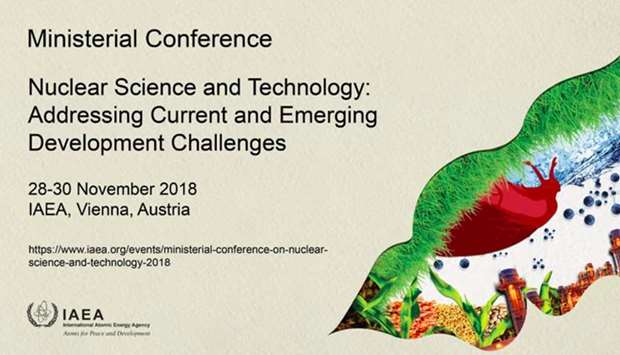Qatar has affirmed its keen interest in benefiting from the peaceful applications of nuclear energy, for the prosperity and improvement of the quality of life that can be achieved through these applications, stressing the importance attached to this energy in the implementation of the Sustainable Development Plan 2030, which has comprehensive goals that balance the three dimensions of sustainable development; the economic, social and environmental.
Qatar warned that the expansion of nuclear power plants, especially in some countries that have overstated their contracts in recent years to build many nuclear power plants at a time when their infrastructure, national expertise, regulatory frameworks and safety personnel have not been completed, could create legitimate concerns about the safety and security of energy reactors.
These concerns are increasing in the geographically neighbouring countries, which call for strengthening national, regional and international legal frameworks, increasing transparency, sharing information and building confidence in those activities.
This came in a statement delivered by the acting charge d'affaires at the Qatari embassy in Vienna, Abdullah bin Nasser al-Fahid, before the High-level International Ministerial Conference on Science and Nuclear Technology organised by the International Atomic Energy Agency (IAEA).
Al-Fahid highlighted Qatar's keen interest in benefiting from the peaceful applications of nuclear energy, because of the prosperity and improvement of the quality of life that can be achieved through these applications, adding that the state is actively working to establish its scientific, research and legal base in nuclear energy in order to be able to keep pace with the latest technologies and applications, and thus utilise them in different fields.
He said that nuclear science and technology are among the most important technologies of this age because it can make a broad contribution to the development of various fields of life and make an effective contribution to the implementation of the 17 sustainable development goals embodied in the 2030 Sustainable Development Plan.
He voiced Qatar's appreciation for the important role played by the IAEA in transferring nuclear expertise and techniques through scientific seminars and training workshops in various aspects of the peaceful uses of nuclear energy and its keenness on having many participants in these activities.
The Technical Co-operation Programme (TCP), which is the main instrument for the transfer of nuclear technology, plays a major role in improving the health and lives of individuals by adapting nuclear science and technology and making them available in the areas of healthcare, food, agriculture, industry and many other areas, he added.
He stressed that Qatar had consistently supported the programme paying, in full, its contributions to the TCP annual budget.
He further called for addressing the issue of the TCP limited resources and providing adequate resources to it.
Al-Fahid referred to the renovation and modernisation of the IAEA laboratories in Seibersdorf, where the training of cadres from IAEA member-states will be carried out in food security, water resources management, human health, environmental radioactivity and livestock, underlining Qatar's keenness to be one of the 34 countries that have contributed to the financing of the IAEA laboratories' modernisation project.
He expressed the hope to continue Qatar's co-operation with the IAEA in all areas of the peaceful use of nuclear energy and its support for the principles contained in the Vienna Ministerial Declaration on Nuclear Science and Technology.

International Ministerial Conference on Science and Nuclear Technology
